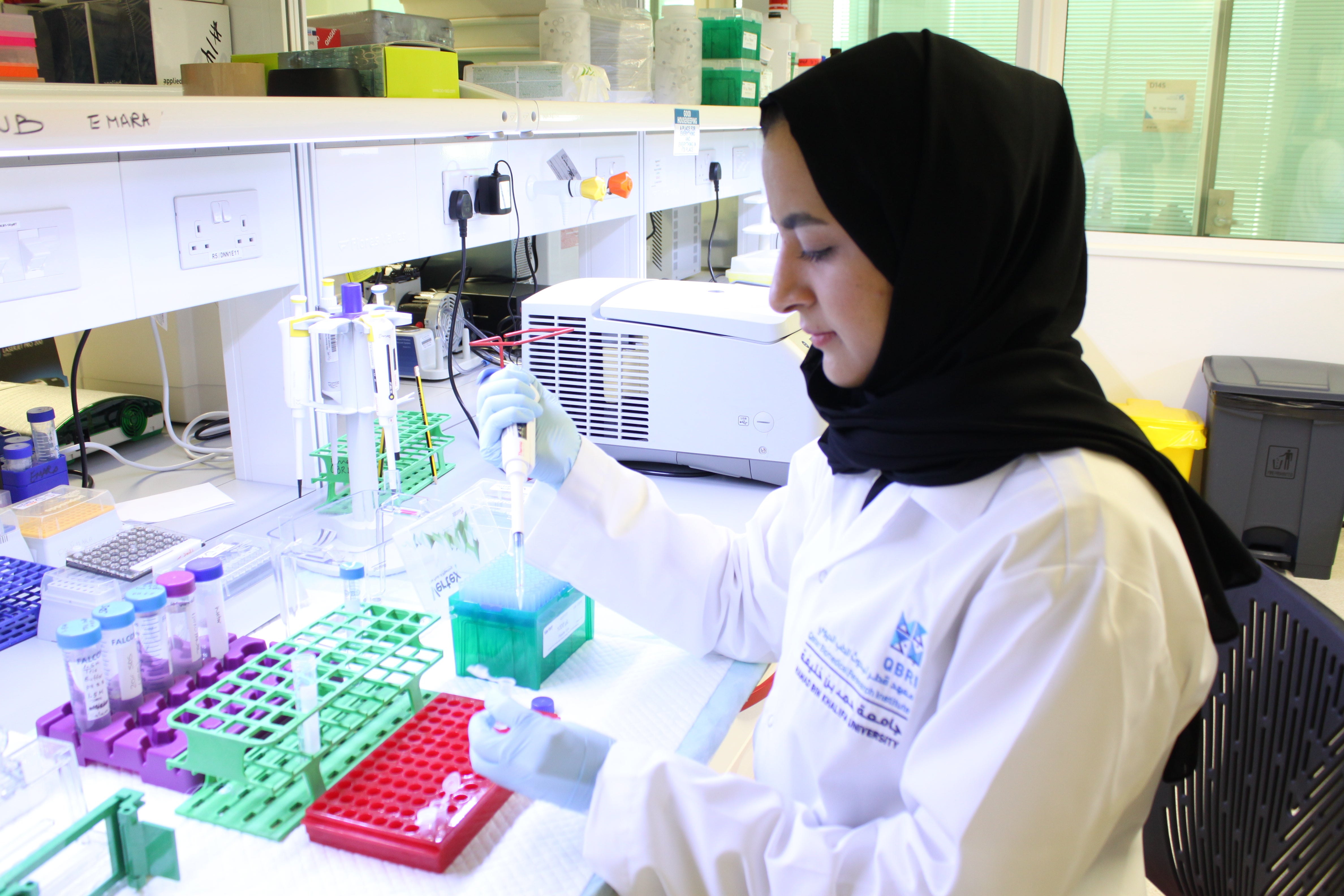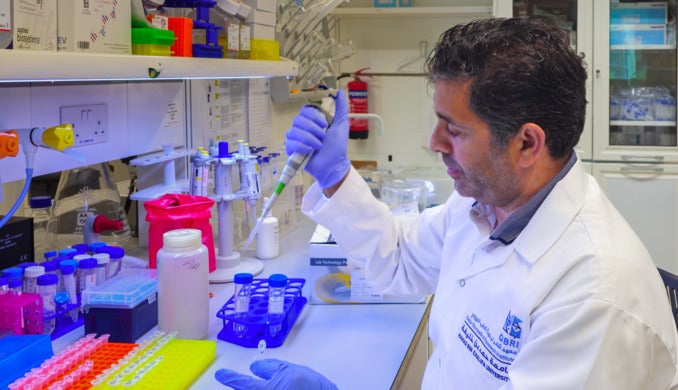By QBRI Staff

Being a Ph.D. student can be demanding, especially when launching a career in science. Early planning is essential. Qatar Foundation (QF) aimed to facilitate this journey by introducing the Qatar Research Leadership Program (QRLP), an initiative of Qatar Research Development and Innovation (QRDI) Council. QRLP guided elite graduate students through their postgraduate studies providing necessary research experience.
After completing the QRLP, Qatari postdoctoral science professionals were given opportunities to conduct research in professional settings. These included the Qatar Biomedical Research Institute’s (QBRI) research fellowship program, which covers the Institute’s Translational Oncology Research Center (TORC), Diabetes Research Center (DRC), and Neurological Disorders Research Center (NDRC). By helping the fellows set up their lab and providing necessary funding, they were then ready to build their own team of researchers and embark on their path to becoming independent scientists.
Today, we proudly celebrate the achievements of two esteemed research fellows who have advanced to the prestigious position of scientists at QBRI. With a background in biomedical sciences from Cardiff University and a Ph.D. from the University of Oxford, Dr. Abeer Al-Shammari commenced her journey at QBRI as a research fellow in 2017. Recently appointed as a scientist at the NDRC, she now dedicates her efforts to unraveling the intricate interplay between genetic and environmental factors in neurodevelopmental disorders, with a specific focus on autism.
Upon joining QBRI, her primary task was to identify a niche area of study that aligned with the Institute’s and Qatar's research priorities, while also holding significance for the international research community. After defining her focus, Dr. Al-Shammari encountered the typical hurdles faced by new and young researchers. One notable challenge was establishing connections with local clinicians to procure clinical samples from children aged 2–4 years. Establishing a laboratory and acquiring state-of-the-art technologies necessary for her work also presented significant hurdles.
Dr. Al-Shammari specifically focuses on the interaction between the nervous and immune systems in autism while also seeking to explain the underlying causes of immune abnormalities observed in the blood of individuals with this disorder. The objectives of her research are twofold: to identify potential biomarkers for the early diagnosis of autism, and pinpoint novel therapeutic targets for the disorder. Given that her study cohort hails from Qatar, she anticipates uncovering biomarkers and therapeutic targets that are both unique and specific to Arab children within the country. Such findings hold immense importance as they could encourage efforts towards personalized medicine and the implementation of early intervention programs tailored to the needs of young children in Qatar.
Like Dr. Al-Shammari, Dr. Heba Al-Siddiqi completed her undergraduate studies at Cardiff University, before pursuing advanced training at the Harvard Stem Cell Institute and a Ph.D. from the University of Oxford. Intrigued by QBRI's research on diabetes, she joined the fellowship program in 2018, and is now a scientist at the DRC where she brings expertise in stem cell research to her role.
Like all Ph.D. candidates, Dr. Al-Siddiqi encountered her fair share of challenges throughout her academic journey, particularly setbacks and failures inherent in experimental work. She nevertheless acknowledges that such challenges are common and that overcoming them requires resilience, perseverance, and adaptability. To assist, Dr. Al-Siddiqi emphasizes the importance of maintaining an open mind and willingness to explore new approaches when faced with experimental failures.
Dr. Al-Siddiqi's research primarily focuses on generating pancreatic beta cells from human stem cells, to advance our understanding of molecular pathways leading to diabetes. Both in Qatar and internationally, diabetes poses significant health and economic burdens. Efforts to enhance understanding of the disease are therefore crucial for better management and prevention. Dr. Al-Siddiqi's research on improving pancreatic beta cell differentiation holds promise for more efficient generation of stem cell-derived pancreatic beta cells, contributing to the advancement of cell therapy approaches for treating a global health issue.
As exemplified by Drs. Al-Shammari and Al-Siddiqi, QBRI’s research fellowship program serves as a springboard for nurturing scientific talent and fostering innovation. These exceptional individuals exemplify Qatar's commitment to advancing biomedical research and inspire future generations of scientists to pursue their passions and break barriers in their respective fields.












